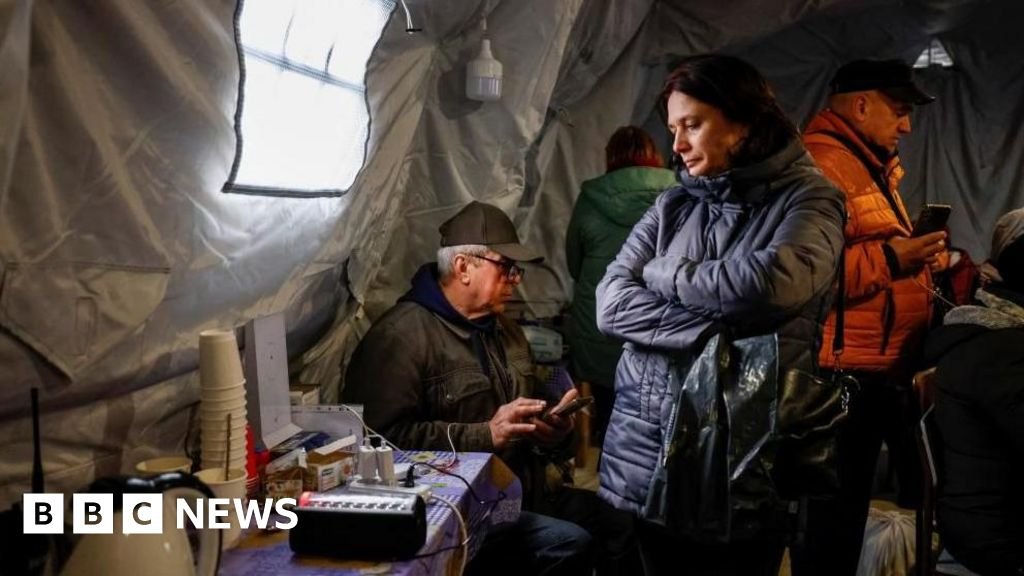
Chernihiv in total blackout after ‘major’ Russian attack

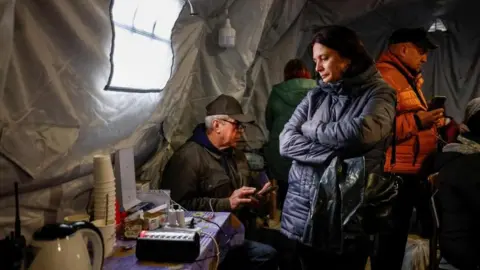 Reuters
ReutersThe Ukrainian city of Chernihiv is in total blackout following what authorities described as a “major” attack by Russian missiles and drones, affecting hundreds of thousands of people.
Four people were reported killed in an attack in a residential neighborhood in the city of Novorod-Siversky, in the wider Chernihiv region.
Ten others, including a ten-year-old girl, were injured.
The country’s northernmost region has been hit by an intensifying series of attacks on civilian infrastructure as Russia targets energy supplies, rail networks, homes and businesses in a full-scale invasion of Ukraine.
“I personally heard drones flying,” said 55-year-old Oleksandr Babich.
Residents of the city of Chernihiv spoke matter-of-factly about a night filled with the low rumble of Iranian-designed Shahed drones, sounds that can now be heard far from the front lines of the war.
“Unfortunately, our region is very close to our scheming neighbor,” he said, adding an explanation for good measure.
Chernihiv region shares borders with both Russia and Belarus, giving its air defenses little time to respond to incoming attacks.
In a raid involving more than 100 Shahad drones – each carrying a 50kg warhead – and six ballistic missiles, a direct strike on Chernihiv’s power generation facilities left the entire city and large surrounding areas without power.
Andriy Podorvan, deputy head of the Chernihiv regional military administration, told the BBC that it was part of a pattern in many parts of the country, with things getting worse in recent months.
“For about half a year we have been experiencing targeted strikes on energy infrastructure in our region,” he said.
“There has been a significant increase in the number of attacks in the last two months.”
When I asked him if he believed any of the targets were of military value – Moscow’s usual justification for these types of attacks – he pointed out that Russia was also targeting petrol stations.
“I only see strikes on civilian infrastructure,” he said.
An attack on the power grid means loss of power to water pumping stations, severely affecting supply. Residents are asked to stock up on bottled water or rely on emergency supplies.

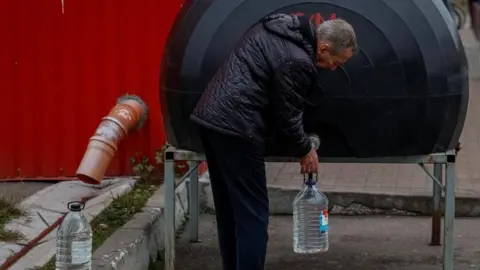 Reuters
ReutersAs the attacks continued throughout the morning, electrical engineers had to delay their initial response – but were later able to work to restore power.
The broader concern is that, if Russia’s bombing continues to escalate, it risks rapidly eroding the country’s energy resilience, hitting the economy hard and – with a harsh winter ahead – traumatizing the public.
So far, the country’s generating companies – working together in a spirit of wartime cooperation – have been able to restore power relatively quickly, but the stock of replacement equipment is not unlimited.
A single transformer can take more than a year to produce, with additional time for transportation and installation.
The country needs to find all the help it can get.
Ukrainian President Volodymyr Zelenskyy’s recent meeting with US President Donald Trump in Washington could be seen as a strategic disappointment, leaving without a delivery of long-range Tomahawk missiles.
But his meetings with the heads of leading US energy companies, in which they discussed ways to help Ukraine modernize and modernize its energy sector, are said to have been scuttled.
Some estimates put the total cost of damage to Ukraine’s energy infrastructure so far at more than $16bn (€13.7bn; £11.9bn).

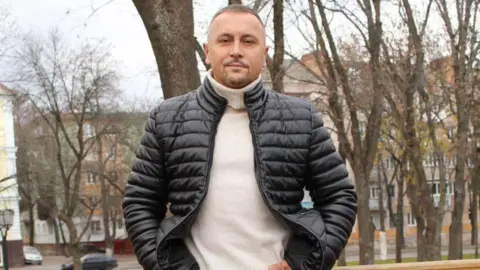
In Chernihiv, regional official Andriy Podorvan told the BBC that he believes Russia cannot make any significant progress on the front and therefore now sees the civilian population as a weak point.
But he thinks this is wrong.
“People understand who is the enemy and who is to blame in this situation,” he said. “It will create more unity of the population.”
Mr. Babich agrees.
“Although, yes, there are inconveniences, the majority of the population is ready for it,” he insists.
Many are operating as usual, he pointed out, with back-up generators for critical facilities such as hospitals and government buildings, and neighbors helping each other.
“The Hero City of Chernihiv has not given up and will not give up. Morale is high.”

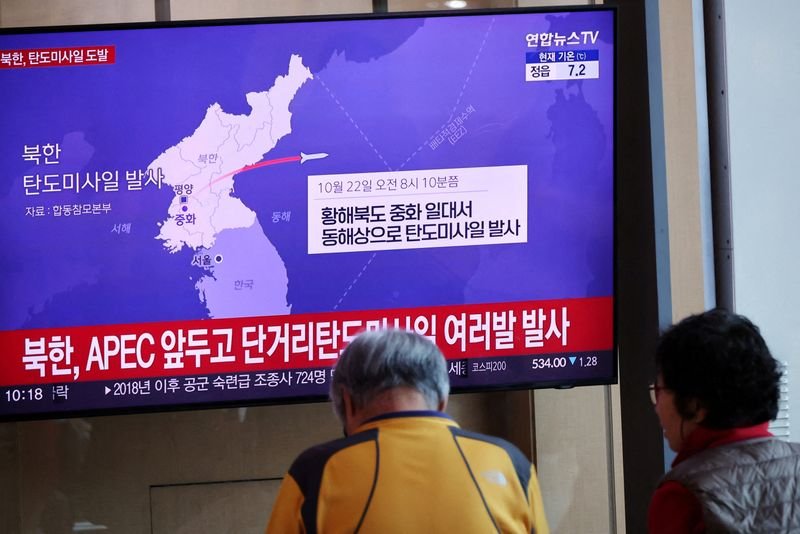










Post Comment